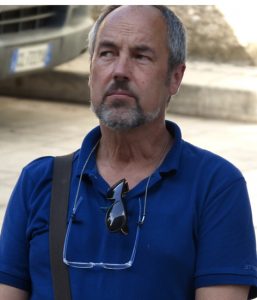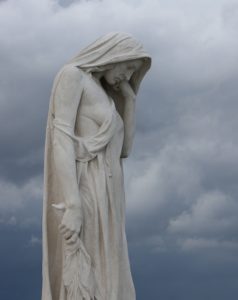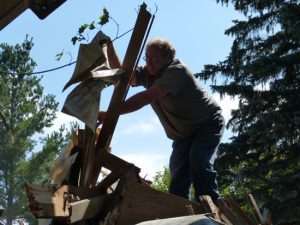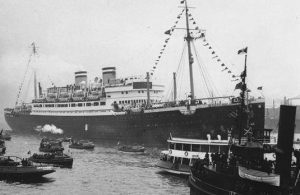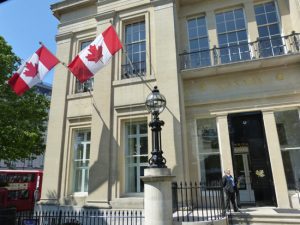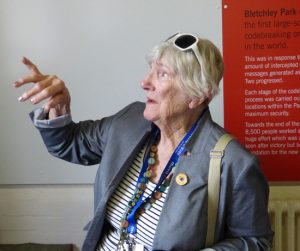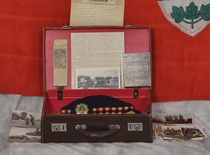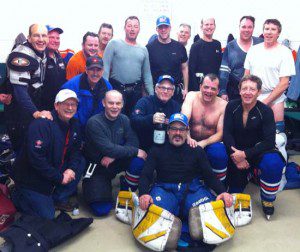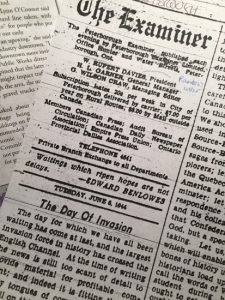 It was a spring day, not unlike others on the home front that year. And Canadians, as they had since 1939 when the Second World War began, looked eagerly overseas for news. Jean Portugal, in her second full year on the job at the Peterborough Examiner newspaper, faced one of those graveyard shifts working overnight. Suddenly, the wire service machine delivering international news into the Examiner newsroom, began to clatter. And night editor Portugal faced a difficult decision.
It was a spring day, not unlike others on the home front that year. And Canadians, as they had since 1939 when the Second World War began, looked eagerly overseas for news. Jean Portugal, in her second full year on the job at the Peterborough Examiner newspaper, faced one of those graveyard shifts working overnight. Suddenly, the wire service machine delivering international news into the Examiner newsroom, began to clatter. And night editor Portugal faced a difficult decision.
“I knew I would have to wake up one of the managers,” she told me in 2004. “The Allies had landed in Normandy, and I had to get permission to use Second-Coming-sized type on the front page.” (more…)
